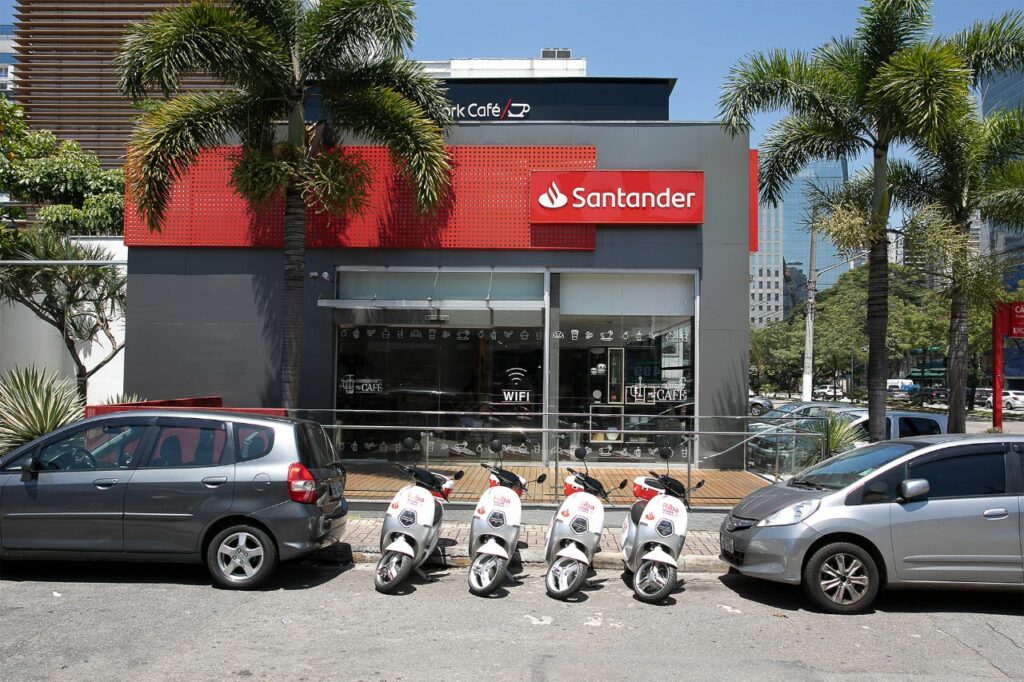
Banco Santander Sponsors Electric Scooter Project in Brazil

In 2020, Brazil established the National Electric Mobility Platform (PNME) as a joint effort of important public actors, industry, academia and civil society to identify long-term goals.
One of the advances made by the government sector at the beginning of this year was made by the São Paulo State Military Police (PM-SP), which received another electric car to add to its fleet of vehicles: the BYD e5. The Chinese sedan, which in Brazil is sold only to companies, was provided by the manufacturer at no cost to the public coffers and will assist the corporation in patrols and monitoring.
From the private sector, large projects have been submitted to promote electromobility. One of them is Banco Santander, an institution supporting a rental service for electric motorcycles that will save about 20 tons of carbon (CO2) per year.
According to the European Environment Agency, more than 70% of greenhouse gas emissions from transport are produced by cars, vans, trucks and buses. For this reason, the financial institution has decided to invest in more eco-friendly mobility.
Santander Brazil is sponsoring a pioneering project in the capital, São Paulo, in which people will have 50 scooters at their disposal to move around the city and reduce emissions. The use of these two-wheeled vehicles will also cut noise pollution, since the electrified ones do not generate the same noise as conventional ones.
How Will the Initiative Work?
Banco Santander Brazil detailed that users can request the motorcycles from 6 a.m. to 11 p.m., through the Riba Motos app. Among the requirements to access the service are: to be legal age and to have a National Driver’s License in category A. In this way, after making a simple payment with a credit card, the vehicle and the protective helmet, of mandatory use, will be unlocked. In addition, the project includes accident insurance and technologies that allow tracking the vehicles -which do not exceed 50 km/h- in real time.
Although initially the geographic availability will be very limited, the objective is to expand it and meet the mobility needs of more people, as well as to make progress in terms of sustainability and build a more environmentally responsible entity.
For Carolina Learth, Head of Sustainability at Santander Brazil, the institution has increasingly dedicated itself to projects that pursue life improvement in major urban centers. “This is the case of our partnership with shared electric motorcycles, which in addition to helping mobility, being a means of transportation accessible to the population, improve the air we breathe.”
This initiative is part of Santander’s strategy, seeking to transform itself for the future, through pillars to generate sustainable growth and increase the profitability of the business.





